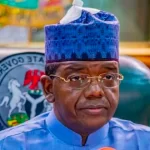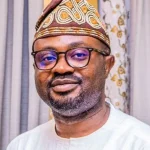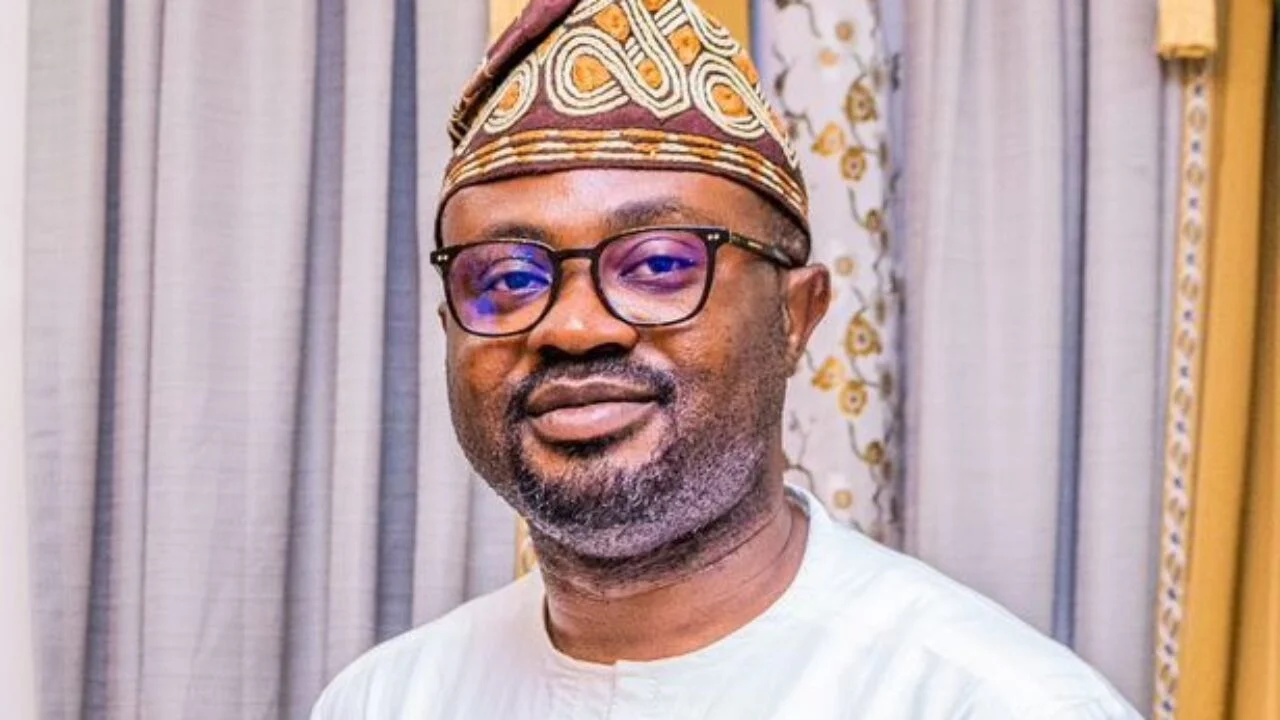
Amid growing concerns over the alarming rise in out-of-school children, state governors continue to neglect the Universal Basic Education (UBE) funds initiative, leaving critical educational needs unmet.
According to the Universal Basic Education Commission (UBEC), 27 states failed to access the funds between 2020 and 2023. And in 2024, a whopping 34 states are yet to access those matching grants that are meant to provide the needed infrastructure, as well as teaching and learning tools for the basic education sub-sector.
Just yesterday, the Executive Secretary of the Universal Basic Education Commission (UBEC), Dr Hamid Bobboyi, confirmed that more than N135 billion matching grants for the implementation of Universal Basic Education, have been unused between 2020 and 2024, despite growing infrastructural needs across the states.
Aside from the decrepit state of school facilities across communities, data from the National Mass Education Programme Initiative (NMPI) and the United Nations Children’s Fund (UNICEF), showed no fewer than 18.3 million out-of-school children are in Nigeria.
Seven northern states account for 7.95 million of that number. Kano is estimated to have 1.89 million kids out-of-school, Katsina 1.4 million; Bauchi 1.37 million; Kebbi 1.06 million; Yobe 730,000; Kaduna 660,000, and Niger 640,000.
In the South-West, Lagos has 703,756 kids out-of-school; Ogun, 621,291; Oyo 682,058; Osun 463,780; Ondo 507,029; and Ekiti 359,224, totalling 3.337 million.
In the South-East, Enugu has 1.37 million; Abia 1.024 million, Imo 933,300, and Anambra 530,700 totalling 3.86 million. Despite the staggering needs, a breakdown of the unaccessed funds showed that Kano has N581 million; Katsina N1.39 billion; Bauchi N2.6 billion; Yobe N1.39 billion; Kaduna N1.39 billion; Kebbi N1.39 billion; and Niger N1.39 billion in outstanding.
In the South-West, Ogun is estimated to have N4.26 billion; Oyo N2.6 billion; Ekiti N1.39 billion; and Lagos N1.39 billion; while Abia has N4.28 billion; Imo N3.54 billion; Anambra N2.6 billion; and Ebonyi N2.6 billion in unclaimed grants.
Others include Adamawa, N2.6 billion; Edo N2.6 billion; Cross River N2.04 billion; Bayelsa N1.39 billion; Gombe N1.39 billion: Akwa Ibom N1.39 billion; Kogi N1.39 billion; Plateau N1.39 billion; Federal Capital Territory (FCT), Abuja, N1.39 billion; Rivers N697 million; and Benue N20 million.
The total amount abandoned by states in 2020 stood at N1.4 billion; N2.8 billion in 2021; N14.4 billion in 2022 and N36.1 billion in 2023. Receiving members of the Senate Committee on Basic and Secondary Education on oversight function to the Digital Resource Centre, yesterday, Bobboyi hinted that only Katsina and Kaduna have accessed first and second quarter 2024 matching grants to date.
He said: “The sum of N135.54 billion is the total un-accessed UBE matching grants (2020-2024) as of 31st October 2024, by the 36 States and the Federal Capital Territory (FCT).
“Out of N103.28 billion appropriated for 2023, N94.70 billion was utilised. For the year 2024, out of the N263.04 billion appropriated, N32.26 billion was utilised as of 31st October 2024,” he said.
According to the Executive Secretary of UBEC, only 16 states accessed the 2023 matching grant, representing 41 per cent of the appropriated N51.6 billion for basic education.
The states are Benue, Borno, Cross River, Delta, Enugu, Jigawa, Kano, Kwara, Nasarawa, Niger, Ondo, Osun, Rivers, Sokoto, Taraba and Zamfara. The executive secretary said N51.6 billion was appropriated by the Federal Government as a matching grant to states in 2023, explaining that only N21 billion was accessed by the 16 states as of June 30, thus showing 54 per cent utilisation.
Bobboyi expressed concern that many states have failed to meet the necessary conditions to access these funds, leaving much-needed resources untapped for educational development.
He explained that in terms of regional performance, the North-West Zone has performed the best, achieving 100 per cent access to the funds, while the South-East Zone has the least accessed funds with 85.37 per cent of its 2022 matching funds.
“As of October 31, 2024, the North-West Zone-1st position with 100 per cent accessed, the South-South zone-2nd position with 97.92 per cent accessed, North-Central zone-3rd position with 97.76 per cent accessed, North-East zone-4th position with 97.57 per cent accessed, South-West zone-5th position with 92.28 per cent accessed, South-East zone-6th position with 85.37 per cent accessed.”
He added that 33 states and FCT have accessed the 2021 matching grant, but three states namely: Abia, Imo, and Ogun have not.
A total of 29 states and FCT have accessed the 2022 matching grant, seven states namely: Abia, Adamawa, Anambra, Ebonyi, Imo, Ogun and Oyo have not accessed it for that year.
Twenty-five states have accessed the first-fourth quarters of the 2023 matching grant, while Rivers, accessed Q1 and Q2 of the 2023 matching grant. Nine states and FCT have not accessed the 2023 matching grant. The states are Abia, Adamawa, Akwa Ibom, Anambra, Ebonyi, Imo, Lagos, Ogun, Oyo and Plateau.
The United Nations Children’s Fund (UNICEF) recently estimated the total number of out-of-school children in Nigeria to be 18.3 million, saying one in every three children in the country is out of school.
According to the agency, of the figure, 10.1 million are at the primary level, while 8.2 million are at the junior secondary school level. UNICEF added that one in every five out-of-school children in the world is in Nigeria, with over 60 per cent in the north. The agency noted that over 3.3 million students drop out of school before junior secondary school.
According to the organisation, about 11,536 schools were shut in the North between December 2020 and April 2023 because of violence. Experts linked the high dropout rates to poor funding of education, corruption, poverty, poor implementation of the Child’s Rights Act, and lack of political will to address the problems.
Data from the National Bureau of Statistics (NBS) multidimensional poverty index showed that in Kaduna, 29 per cent of children of school age are deprived of access to school, 35 per cent in Kano, 38 per cent in Katsina and 45 per cent in Kebbi.
Recent data from the states also painted a grim picture. In 2024, Katsina budgeted N2.9 billion for its Universal Basic Education Board capital expenditure but failed to spend any money in the first six months of the year on this purpose; hence, it recorded zero per cent budget performance, as contained in the officially released budget performance document of the state.
Kano State budgeted N10.5 billion for its state universal basic education fund, but only spent N581 million in the first six months of the 2024 fiscal year as also contained on the budget performance documents of the state.
Access to education and the poor state of schools are also part of the major challenges in the north. For instance, in June 2024, the Kano state governor, Abba Yusuf, lamented that over 4.7 million pupils are forced to sit on bare floors to learn, painting a dire need for intervention in schools.
Despite words, findings showed that the state governors are not putting money to back up solutions to their complaints, as actual budgetary expenditure to the budget remains low.
Poor education has also been labelled as one of the causes of poverty and poor economic indices in the north.Deputy Director of the Socio-Economic Rights and Accountability Project (SERAP), Oluwadare Kolawole, lamented that the failure of state governors to access UBEC funds has continued to retard development in the country’s public schools.
Read also:Shettima launches indigenous Healthcare solutions
Kolawole reminded that the funds are meant to provide the necessary infrastructure in basic schools, train, and pay teachers’ salaries, among others. He noted that primary education not only lays the foundation for other levels, but it’s also the fulcrum of the socio-political and economic advancement of any country.
“It is meant to provide the learner with opportunities to acquire literacy, numeracy, creativity, and communication skills. Besides, children are to enjoy learning and develop a desire to continue learning and harness the ability for critical thinking and logical judgment,” he added.
Founder of Education for All, a non-governmental organisation, Malik Adesegun, said it is unbelievable that over N50 billion lie dormant with UBEC, with only a few states able to access the funds when there is a serious need for money to develop basic education.
Adesegun urged the governors to step up efforts to access the funds in view of the deplorable conditions under which children learn in their states. Some stakeholders held the states responsible for their inability to access the funds.
They warned that such a move would spell further danger for education, whose fortune has continued to decline with each administration. Pro-Chancellor and Chairman of Council, Chrisland University, Ogun State, Prof. Ayodeji Olukoju, said the failure of the various state governors to prioritise basic education was responsible for the increasing number of children out of school. He wondered why those who received formal education up to the tertiary level could be so indifferent to the mass illiteracy among children and youths.
“This smacks of insensitivity and lack of vision, for the youths who are the future of any society, and an educated citizenry is easier to lead,” he said. As a way out of the problem, Olukoju emphasised the need to engage stakeholders, including religious and community-based organisations, parents and other opinion moulders.
He said such engagements should come up with short, medium and long-term solutions, such as a mixture of incentives (free education up to secondary school level and free lunch, which would drive school enrolment. An educationist, Dr Adeolu Onakoya, said governors must make schools safe, attractive to students and rewarding to parents.
Nigeria approves ₦47.9trn 2025 budget – plans $1.7bn Eurobond
“At the moment, many children are not going to school because their parents are too ignorant, or too poor to understand that the children should be in school.
“State governors need to rediscover the importance of education to society, institutions and economy. Education is not just a place that grows individuals, it is a sector that grows and protects the country and institutions. State governors need to realise that in the history of humanity, there is no single country that has found prosperity and progress without a thriving education sector,” Onakoya stated.










